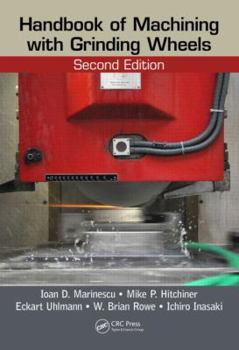Handbook of Machining with Grinding Wheels
Grinding is a crucial technology that employs specific abrasive processes for the fabrication of advanced products and surfaces. Handbook of Machining with Grinding Wheels, Second Edition highlights important industry developments that can lead to improved part quality, higher productivity, and lower costs. Divided into two parts, the book begins with an explanation of grinding behavior and ends with a focus on new and emerging industrial applications.
While the first edition focused on the basics of abrasive machining technology and presented a unified approach to machining with grinding wheels, the second edition ties in the continued need for traditional processes in conjunction with the latest applications. This book highlights new research topics that include: nanotechnology, alternative energy, and additive manufacturing, compares related approaches, and provides numerous references throughout the book.
New in the Second Edition:
Contains the latest information on abrasives, bonds, and dressing Updates classic stability lobes for grinding Introduces a new method for tracking dynamic instability in centerless grinding Provides a section in the chapter on ultrasonic-assisted grinding, which contains recent work on modelling of the process Adds material on fluid cooling Presents experimental results for in-process feedback to the grinding process Includes new examples on grinding machine technology (particularly for dressing)
A single source reference covering every aspect of the grinding process, Handbook of Machining with Grinding Wheels functions as a definitive guide to grinding technology for both practicing engineers and students studying graduate-level courses (such as abrasive machining; grinding R&D; metal removal processes; machining of brittle materials; and principles of cutting).
Related Subjects
Engineering Science Science & Math Science & Scientists Science & Technology Technology




